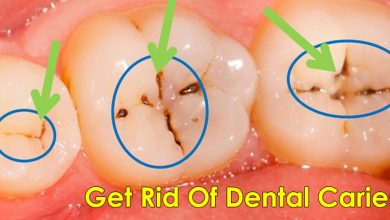How Do Emotions and Thoughts Impact Physical Health?

Are you suffering from a bunch of physical ailments? They’re likely intrinsically connected to your emotions. But in what way?
The facts? Mind-body interaction is a real thing, and it can dramatically affect our physical health. If we experience negative thoughts, feelings, and emotions, these can influence how we feel physically: anger can result in hypertension, grief can elicit lethargy – and chronic stress?
It can even shorten our lifespan. So in that sense, isn’t it a no-brainer that we do all possible to stay positive? If nothing else, maintaining a positive mindset both enhances and supports our physicality.
But the sad truth? Humans are hard-wired to be negative. This dates back to the caveman era – when the human brain’s innate tendency to recall and dwell on past traumas protected us from future impending dangers.
But now that we are no longer under threat of being prey to lurking predators, why are our brains still intent on focusing on the negative?
The key to overcoming our innately negative bias – and optimizing how we feel both emotionally, and physically – is to rewire our brains. By reprogramming our negative thoughts, we can bring about more positive emotional health – which in turn can enhance our physical well-being.
Here’s how to do it.
Negative Feelings and Repressed Emotions: How They Could Be Making You Sick
When we talk about the ‘mind/body’ connection, we are referring to the way our bodies respond to the way we think and feel. If we are poisoning our headspace with negativity, this toxicity will almost always spread throughout our bodies, too.
Poor emotional health and declining physical health are, as such, intertwined. Stressed out? Your resultant insomnia will likely cause extreme exhaustion and reduced energy levels. Suffering from anger management issues?
Don’t be surprised if you develop high blood pressure, cardiovascular disease, and digestive issues. Repressing anxiety will also have negative effects on your physical health – you may experience respiratory issues, or even, chronic headaches.
Please be warned though: if you do start to experience any of these symptoms, you need to be sure to consult a physician – before they get worse.
As well as doctors, nursing practitioners who have completed ABSN online programs can also assist in treating any physical conditions you have developed due to poor emotional health.
They may even find it necessary to refer you to a psychologist to provide you with professional emotional support.
Reprogramming Your Mind: Enhancing Emotional Regulation to Support Physical Fitness and Functioning
So how do we overcome our negativity bias, and get the most out of our emotional and physical health? The key to overcoming negativity bias is to actively train our minds to be positive, and essentially, reprogram our brains.
Psychologists commonly offer 3 tips to support this process:
Tip #1: Reframing our Perspective
Just like our naturally occurring flight or flight response, our negative bias is a relic of times past.
But while our prehistoric ancestors relied on this innate negative memory function to protect them from threats they’d come across before – today, we’re not in the same constant danger. So when it comes to negative bias, we simply don’t need it anymore.
The good news? We can get rid of our negative bias. Or at least, we can diminish its impact. But how? The key lies in reframing our perspective.
By training ourselves to see things in a more positive light, we can rewire our internal thoughts. By doing this, we can actively cultivate a positive change in our mental, emotional, and physical health.
Tip #2: Practicing Mindfulness
Mindfulness is a term that’s thrown around quite a lot in psychological circles. But what does it refer to, exactly? Essentially it means being present, attentive, and observant. It means being consciously aware – both of our surroundings and our internal thoughts.
In this way, mindfulness helps us develop the self-awareness we require to be able to overturn naturally occurring negative thoughts and emotions.
Tip # 3: Cultivating Gratitude
It’s true: expressing and cultivating gratitude can help us be more positive.
How does it do this? By focusing on the blessings we currently have, while also reprogramming our brains to seek out the good.
Seeking out good is not only beneficial for the brain, however. It also has a resoundingly positive impact on the body – uplifting our energy levels and contributing to better physical health overall.





